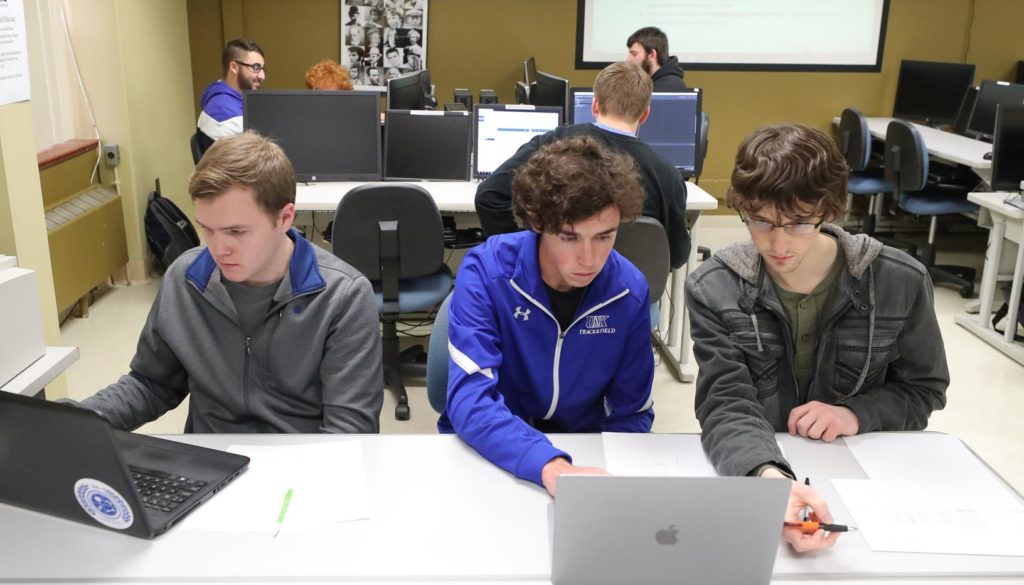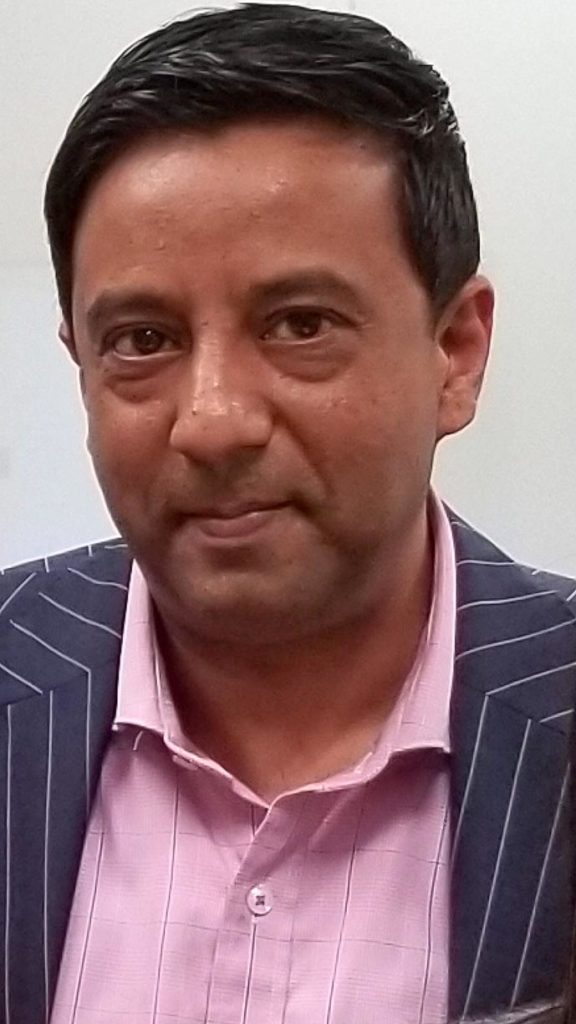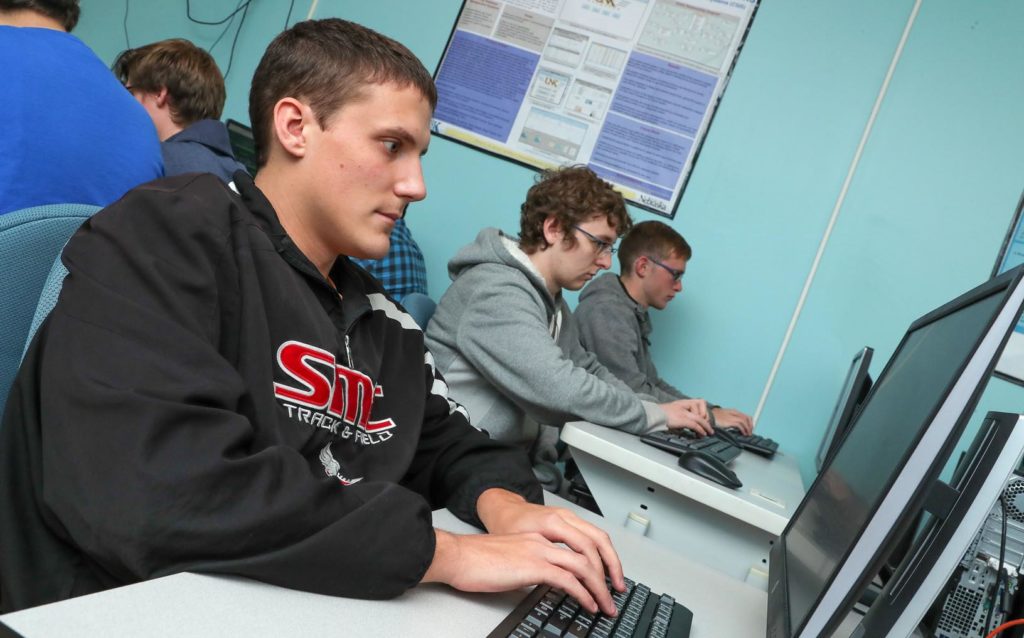
By TYLER ELLYSON
UNK Communications
KEARNEY – There’s a reason Liaquat Hossain is leaving the University of Hong Kong to settle in central Nebraska.
He sees the potential at the University of Nebraska at Kearney, where the new cyber systems department fits his vision for the future.
“I think it can be a world-class educational program,” Hossain said. “The university is ready for that.”

Hossain, a professor of information management, associate dean of research for the Faculty of Education and former head of the Division of Information and Technology Studies at the University of Hong Kong, will join UNK on May 6 as a Ron and Carol Cope Professor and chair of the cyber systems department. The 48-year-old succeeds interim chair Sherri Harms, who will remain with the department as a professor.
UNK launched its cyber systems department last summer, merging five existing programs into a single, cohesive unit and adding a cybersecurity major. The department’s goal is to increase collaboration among faculty and students across disciplines while addressing the critical need for workers in technology-related fields both locally and statewide.
The cyber systems department includes more than 150 students pursuing either a major or minor. Most of them will complete an internship during their time at UNK and many have a job lined up before graduation. UNK’s cyber systems programs had a job placement rate of 100% last year, with 75% of those graduates remaining in Nebraska.
Hossain, who called UNK’s cyber systems initiative “very progressive,” plans to build upon the existing relationships the College of Business and Technology has with businesses and organizations across the state, including the Economic Development Council of Buffalo County, which is committing $45,000 over the next three years to support the department chair position.
“I want to see strong community-based partnerships,” Hossain said, noting that these connections benefit students and provide value to the state by addressing current issues, whether that’s through workforce development or research projects.
He’ll seek public input through an advisory committee he hopes to fill with a mix of representatives from areas such as technology, government and defense, transportation, health care, finance and education.
Hossain, who spent time at Lund University in Sweden, the University of Sydney in Australia, Syracuse University in New York and the Massachusetts Institute of Technology (MIT) before joining the University of Hong Kong in December 2013, said UNK and Kearney are small enough to suit his lifestyle preferences, but large enough to make a global impact.
“At UNK, I see the possibility and the opportunity to fully integrate a truly multidisciplinary program,” said Hossain, an Australian citizen who was born in Bangladesh.
UNK’s new STEM building, which is scheduled for completion in spring 2020, will help accomplish that goal. The $30 million, 90,000-square-foot facility, part of the Otto C. Olsen replacement project, is designed to promote collaboration and innovation across numerous academic departments in the science, technology, engineering and math fields.
“That’s quite an opportunity, so I see that as a big plus,” Hossain said. “On top of that, having a new building also energizes the whole team.”
However, his plan isn’t confined to one building.

Hossain’s vision for a transformational cyber systems department involves programs from all three academic colleges.
“Although it sits in the College of Business and Technology, it could almost be like a central nervous system,” Hossain said of the department.
Technology impacts nearly every occupation, Hossain said, from cyberbullying and online education in K-12 schools to cybersecurity and social media marketing for businesses to GPS-guided machinery on Nebraska farms.

In addition to focusing on the core cyber systems concepts, Hossain sees the potential to add degrees, minors or specializations that combine technology with areas such as business, social science, finance, economics and health sciences, making UNK graduates even more marketable to employers.
He hopes to partner with UNK’s Department of Health Sciences on research and educational programs that promote better health outcomes and aid in community preparedness and emergency response – demonstrating how technology can be an asset following disasters such as the recent Nebraska flooding.
“I look forward to working with department chairs and university administrators representing business and economics, social sciences and health sciences, as well as arts and humanities, to promote a multidisciplinary educational focus and research that support the needs of Nebraska and the nation,” Hossain said.
On a universitywide level, he’s excited about the System Science Collaborative Initiative, which facilitates and strengthens research collaborations among faculty from any University of Nebraska campus.
“I see a bigger opportunity to work across campuses,” Hossain said.
LIAQUAT HOSSAIN
Position: Cyber systems department chair; Ron and Carol Cope Professor
Education: Bachelor of Business Administration, business management, Assumption University (Bangkok, Thailand), 1994; Master of Science in Computer and Engineering Management, system management and operations research, Assumption University, 1996; Doctorate, telecom management, University of Wollongong School of Information Technology and Computer Science (New South Wales, Australia), 1998.
Career: Postdoctoral fellow, Massachusetts Institute of Technology Center for Technology, Policy and Industrial Development, 1998-99; Lecturer, information systems, University of Sydney Basser Department of Computer Science (Australia), 2000-01; Assistant professor, Syracuse University School of Information Studies, 2001-04; Senior lecturer, University of Sydney School of Information Technologies, 2004-08; Director of postgraduate coursework, University of Sydney School of Information Technologies, 2005-08; Associate professor, engineering and information technology, University of Sydney, 2008-10; Director, project management graduate program, University of Sydney School of Civil Engineering, 2008-13; Professor, complex systems and project management program, University of Sydney School of Civil Engineering, 2010-13; Visiting professor, department of informatics, Lund University School of Economics and Management (Sweden), 2012-present; Professor, division of information and technology studies, University of Hong Kong, 2013-present; Head of the Division of Information and Technology Studies, University of Hong Kong, 2016-2018; Associate dean of research for the Faculty of Education, University of Hong Kong, 2016-present.
Family: Two children, Liam, 12, and Lia, 19, who live in Sydney, Australia